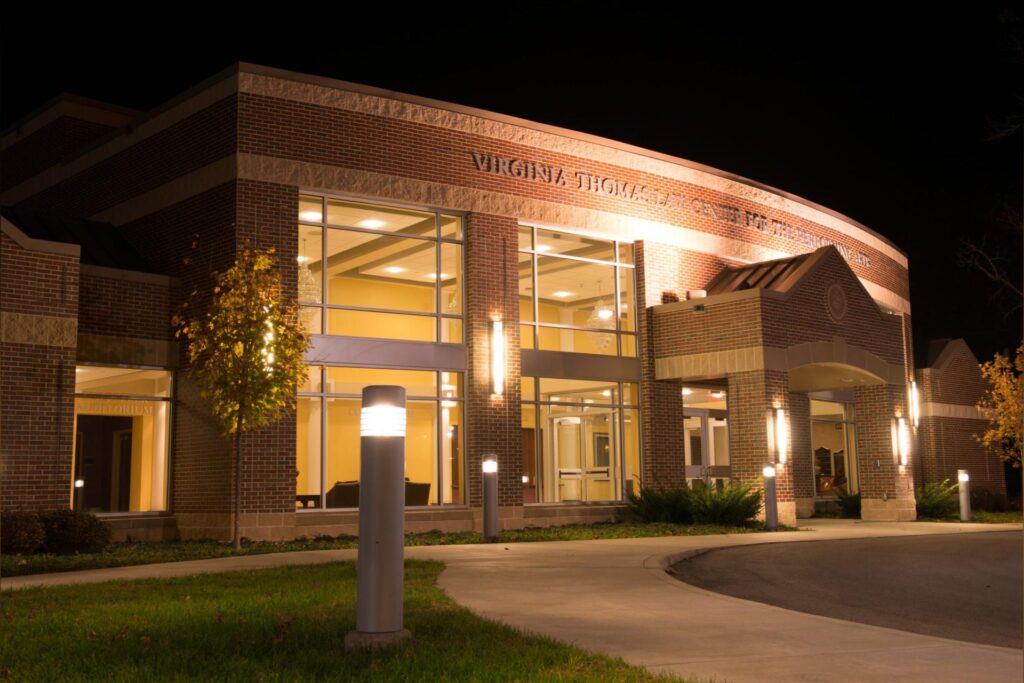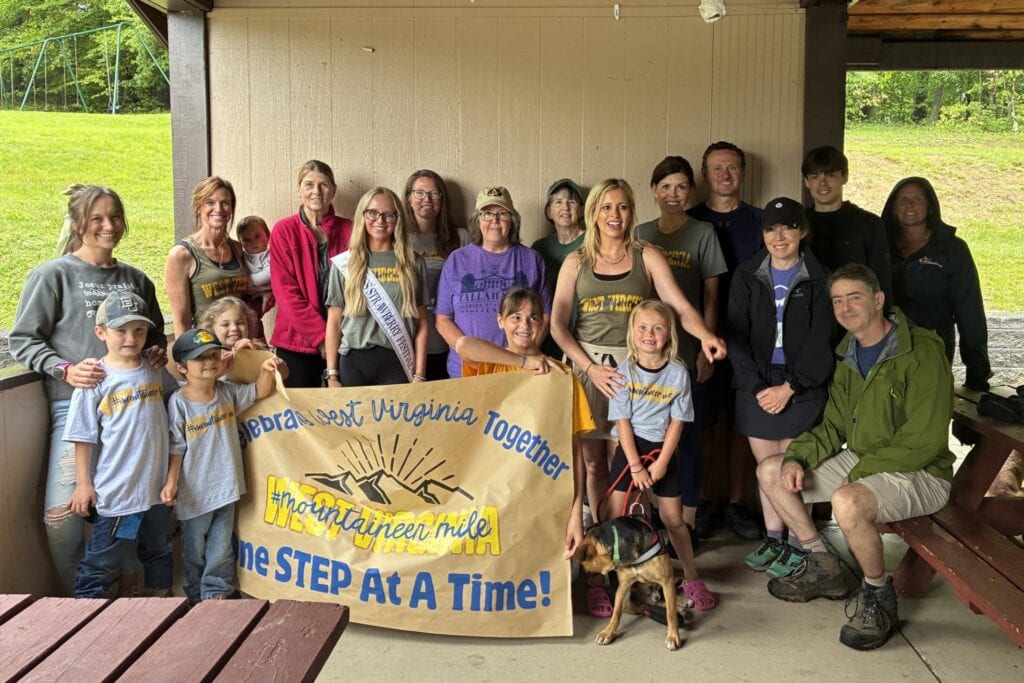Editor’s note: This story was originally published by Mountain State Spotlight.
By Amelia Ferrell Knisely, Mountain State Spotlight
Kayla Boerboom says she knew kids fell through the cracks and went without food last summer in McDowell County. It’s West Virginia’s poorest county, where 43% of children live in poverty.
“A lot of families didn’t have a way to get the food,” Boerboom, a McDowell native, who works in the county for West Virginia University Extension Services, said.
Her summer camps for kids typically served two hot meals a day, but last summer COVID-19 restrictions meant she had to switch to what she called “camp in a bag,” where she gave kids different educational activities to do at home during the day.
McDowell County schools, which provided food when they could to Boerboom’s camp pick-up sites, struggled to reach the students most in need. McDowell County Schools Nutrition Director Perry Blankenship said that last summer he couldn’t afford to hire bus drivers to deliver food to students. He relied solely on volunteers to cook five days worth of food, box it and, when possible, deliver it in the mostly rural county without public transportation.
Those struggles were mirrored across West Virginia, as COVID-19 restrictions kept most summer camps, tutoring programs and free meal programs from opening. Some counties could afford to pay bus drivers or had school personnel to deliver meals, while other counties relied on parents to drive to limited school feeding sites to pick up five days worth of meals. Volunteers tried to fill in the gaps when they could.
Gov. Jim Justice touted the state’s summer feeding plan aimed at connecting kids with food, but Mountain State Spotlight reported on ongoing gaps in the programs that left students, especially those without transportation, without food. Despite the growing need in hunger — state food bank leaders reported a 30% increase in need in the last year — and impending summer feeding needs, West Virginia lawmakers earlier this year failed to take up a bill aimed at improving summer feeding programs for kids.
This summer, though the pandemic continues, a statewide summer feeding plan and reduced COVID-19 restrictions could help close student feeding gaps around the state.
Transportation issues
In McDowell County, Blankenship says transportation issues are the largest contributor to childhood hunger in his area.
“I’m sure there were still kids that we missed [last summer],” he said.
This year, the West Virginia Department of Education said transportation will be offered statewide to some school-based summer feeding programs. Summer academic programs receiving federal stimulus money from the WVDE must provide transportation and meals, according to Amanda Harrison, director for the West Virginia Department of Education Office of Child Nutrition.
“All 55 county boards of education have incorporated transportation into their summer 2021 plans due to special federal stimulus money,” Harrison said.
Like last summer, school districts offering other meal options, like daily or weekly food box giveaways, will vary in what assistance they can offer to families without transportation.
Blankenship said beginning in July, he will feed anyone 18 years of age and under at the county’s two high schools. He’ll be able to serve a hot breakfast and lunch plus snacks. He’s working on hiring summer bus drivers to deliver food and this year has money in the budget to do it.
“Our county is willing to do whatever we need to do to get food to kids,” he said.
Relaxed state and federal Centers for Disease Control and Prevention COVID-19 guidelines will also enable non-school-based summer programs to resume feeding students this summer.
Energy Express, a West Virginia University Extension Service summer program that offers free reading support and meals around the state, will serve food this summer.
The program was completely remote last year, said Energy Express Director Mark Swiger.
He said when kids are hungry, they’re not interested in learning, and feeding kids is an integral part of the academic program that’s been around for more than 25 years.
Swiger is anxious to resume in-person learning and feeding.
“If a child 18 years old or under shows up at the sites, we feed them,” Swiger said. “It’s important to me personally, but it’s also really important to WVU Extension Service.”
Legislature did not pass summer feeding bill
The goal of the bill was to help counties be better prepared to leverage local resources to feed kids and to know how many kids were in need of food.
Delegate Chad Lovejoy, D-Huntington, has sponsored the bill since its inception.
“We saw so many bills that were anti-public education, and here’s a bill that could help kids who aren’t eating,” he said, referencing the state’s passage of a bill that will fund education savings accounts that can be used for private school and homeschool options.
“There was a recognition that this [summer feeding bill] was good and important, but it didn’t do anything,” he added.
The summer feeding bill never got out of the House Education Committee, and other bills addressing food insecurity in the state were largely ignored.
House Education Committee Chairman Joe Ellington, R-Mercer, did not respond to a request for comment about the bill.
“We’ll keep refining [the bill] and hopefully make it better,” Lovejoy said. He plans to reintroduce a broader student feeding bill next year.
The legislature did pass a bill that will continue a state-run program that requires people applying for emergency cash assistance be screened for drugs. Bill opponents argued that the legislation would ultimately keep children in poverty from accessing food and spike child neglect cases. The governor signed the legislation in April.
Gov. Justice did allocate $1 million for food banks in his new budget, which was approved by the Legislature.
More school-based feeding sites planned for this summer
As the school year comes to a close, West Virginia school officials are preparing for another summer of pandemic feeding without legislative support.
Diane Miller, executive director of child nutrition for Kanawha County Schools, said last summer, as Kanawha County Schools was restricted to only handing out to-go food, she learned “valuable lessons” about what hunger looks like in one of the state’s most affluent counties.
“We learned that the need for feeding students does not just follow perceived areas of higher or lower incomes,” she explained. Miller said while Kanawha County won’t deliver meal boxes by bus this summer, the district will offer more feeding sites than last summer in hopes of helping parents more easily get to food. Students in the county’s academic support program will receive transportation and meals.
All 55 West Virginia counties will participate in some type of summer feeding program this summer, according to Harrison with the state education department. She said she expects the state to exceed last year’s number of feeding sites.
“As community spread of COVID-19 is reducing due to increased access to vaccinations, county boards of education are able to plan more effectively at addressing issues such as transportation and menu planning,” Harrison said. School institutions will still abide by mask-wearing practices, she added.
Additionally, the U.S. Department of Agriculture allowed West Virginia to expand its Pandemic Electronic Benefit Transfer, or P-EBT, assistance program to children under the age of 6 who receive the Supplemental Nutrition Assistance Program (SNAP) and are not enrolled in school, according to a state Department of Health and Human Resources press release.
The P-EBT program, which served more than 221,000 West Virginia kids during the 2020-21 school year, provides an electronic debit card for students to purchase groceries and other eligible items.
“[This] has now evolved into a longer-term solution to addressing hunger when students are displaced or not in school,” Harrison said.
The West Virginia Department of Agriculture has financial waivers for food available to school programs, camps, churches and other groups that plan to feed kids this summer.
Crescent Gallagher, the department’s communications director, said the department had a large amount of food available because COVID-related school closures disrupted normal student feeding plans and menus.
“We have millions of dollars of food to get out there,” Gallagher said. “We just need to get the word out.”
Amelia Ferrell Knisely can be reached at ameliaknisely@mountainstatespotlight.org.













